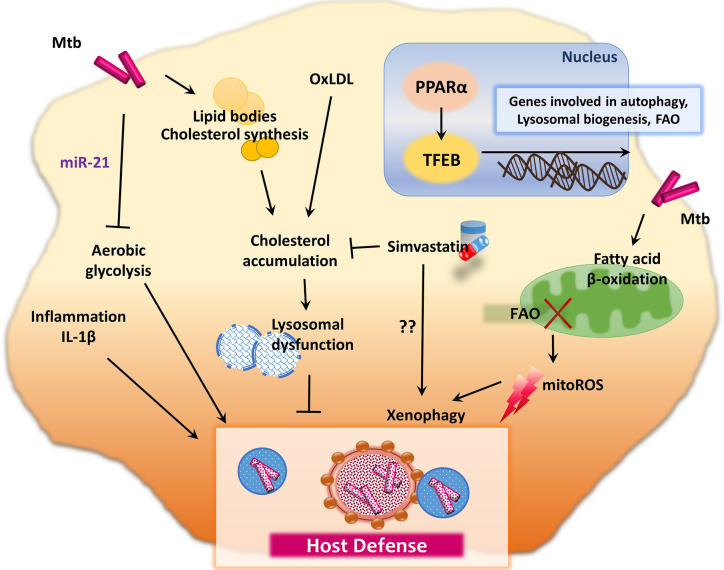Figure 1.
Immunometabolic pathway during mycobacterial infection. Mtb intervene in host cell lipid metabolism for its own intracellular survival. During the metabolic reprogramming process, innate immune responses are induced to regulate the host defense system. For example, Mtb infection in macrophages restricts aerobic glycolysis and IL-1β production through upregulation of miR-21. Moreover, Mtb utilizes lipid synthesis and FAO process to obtain energy and building blocks for membrane synthesis. Inhibition of FAO leads to the enhancement of mitoROS, which promote xenophagy in macrophages infected with Mtb. However, there are also controversial results that FAO is promoted by PPAR-α, which mediates anti-mycobacterial immune defense through lysosomal biogenesis and autophagy activation, via TFEB. The elevation of oxLDL promotes the macrophage lysosomal dysfunction, which contributes to impaired control of intracellular Mtb and host defense. Simvastatin, an oral HMG-CoA reductase inhibitor, decreases plasma cholesterol levels and exhibits host protection against Mtb through autophagy induction in monocytes.

